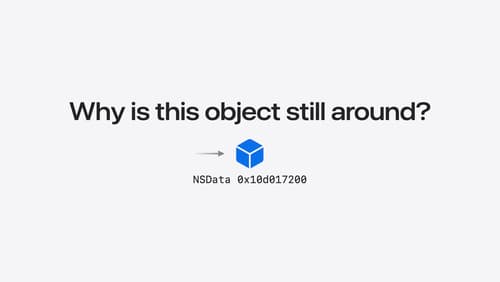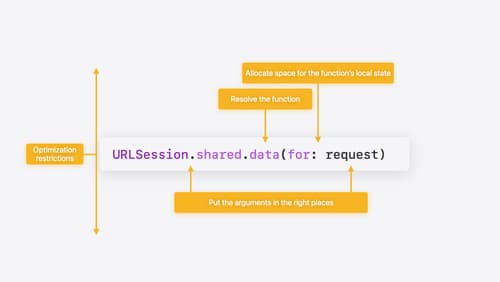Are we need to put weak self for the inner closure if outer closure is weak ?
Asked on 2024-09-06
1 search
In Swift, when dealing with closures, it's important to manage reference cycles to prevent memory leaks. If an outer closure is marked as weak, it means that it does not strongly hold onto the object it captures, allowing that object to be deallocated if there are no other strong references to it. However, if the inner closure captures the same object, it can still create a strong reference cycle unless it also uses a weak or unowned capture.
From the session "Analyze heap memory" at WWDC 2024, it is explained that closures capture references strongly by default, which can lead to reference cycles. To break these cycles, you can use weak or unowned captures. If the outer closure is weak, you should also consider using a weak capture in the inner closure to ensure that the object can be deallocated when no longer needed.
For more details, you can refer to the session Analyze heap memory (21:54) where resolving leaks of Swift closure contexts is discussed.

Analyze heap memory
Dive into the basis for your app’s dynamic memory: the heap! Explore how to use Instruments and Xcode to measure, analyze, and fix common heap issues. We’ll also cover some techniques and best practices for diagnosing transient growth, persistent growth, and leaks in your app.

Explore Swift performance
Discover how Swift balances abstraction and performance. Learn what elements of performance to consider and how the Swift optimizer affects them. Explore the different features of Swift and how they’re implemented to further understand the tradeoffs available that can impact performance.

A Swift Tour: Explore Swift’s features and design
Learn the essential features and design philosophy of the Swift programming language. We’ll explore how to model data, handle errors, use protocols, write concurrent code, and more while building up a Swift package that has a library, an HTTP server, and a command line client. Whether you’re just beginning your Swift journey or have been with us from the start, this talk will help you get the most out of the language.
